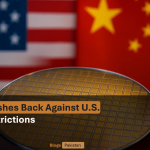The electric vehicle (EV) revolution is heating up, and Xiaomi SUV—the tech giant best known for smartphones and smart home gadgets—is charging ahead with its latest move. Meet the YU7 SUV, Xiaomi’s bold answer to Tesla’s dominance in China’s cutthroat EV market. Slated for unveiling this week, the YU7 isn’t just another electric car; it’s a statement of intent from a company determined to redefine mobility.
But why should Tesla sweat over Xiaomi’s new ride? Let’s dive into the details.
Xiaomi’s Electric Ambition: From Smartphones to Supercharged SUVs
Xiaomi’s journey into EVs began with a bang in late 2023 with the launch of its debut sedan, the SU7. Priced competitively and packed with tech, the SU7 quickly outsold Tesla’s Model 3 in China, proving that Xiaomi isn’t here to play second fiddle. Now, the company is doubling down with the YU7 SUV—a vehicle designed to challenge Tesla’s best-selling Model Y.
What makes Xiaomi dangerous? Three words: ecosystem integration. Unlike traditional automakers, Xiaomi isn’t just building cars; it’s crafting a seamless tech universe where smartphones, wearables, home devices, and EVs work in harmony. Think of your car automatically adjusting your home’s thermostat as you drive—or your phone unlocking your SUV with a tap. This interconnectedness could give Xiaomi a unique edge in user experience.
YU7 SUV: The Tesla Model Y’s Newest Rival
While Xiaomi has kept the YU7’s specs under wraps, industry insiders are buzzing about what’s under the hood. Here’s what we expect:
- Battery & Range: A high-capacity lithium-ion battery with 500+ km (310 miles) of range, matching the Model Y’s capabilities.
- Smart Features: Over-the-air updates, AI-powered driver assistance, and compatibility with Xiaomi’s HyperOS ecosystem.
- Design: Sleek, aerodynamic lines and a minimalist interior dominated by a panoramic touchscreen.
But the real magic lies in Xiaomi’s pricing strategy. The SU7 sedan undercut the Model 3 by nearly 20%, and the YU7 could follow suit. If Xiaomi prices the YU7 aggressively, Tesla might need to rethink its own strategy in China—the world’s largest EV market.
Why China’s EV Market Is a Battleground with SUV
China isn’t just a market; it’s a tech-driven EV warzone. Local giants like BYD, Nio, and XPeng are already nipping at Tesla’s heels, and Xiaomi’s entry adds fuel to the fire. Here’s why the YU7 matters:
- Tesla’s Vulnerability: Despite its global appeal, Tesla relies heavily on China for sales. The Model Y accounted for over 75% of its Shanghai Gigafactory output in 2023.
- Homegrown Advantage: Chinese consumers increasingly favor domestic brands offering comparable tech at lower prices. Xiaomi’s strong local reputation could lure buyers away from Tesla.
- Government Backing: Beijing’s push for EV adoption and subsidies gives Xiaomi a tailwind.
Speed Bumps: Xiaomi’s Challenges Ahead
It’s not all smooth roads for Xiaomi. The company faces hurdles that could stall its EV ambitions:
- Safety Concerns: A fatal crash involving the SU7 sedan in March 2024 sparked scrutiny over Xiaomi’s safety protocols. Regaining public trust will be critical.
- Production Scalability: Ramping up EV manufacturing is expensive and complex. Can Xiaomi avoid the delays that plagued Tesla’s early days?
- Global Reach: While Tesla operates worldwide, Xiaomi’s EVs are currently China-focused. Expanding overseas will require massive investment.
Beyond the YU7: Xiaomi’s Tech Ecosystem Play
This week’s launch event isn’t just about cars. Xiaomi will also debut:
- Xiaomi 15S Pro Smartphone: A flagship device with AI enhancements and lightning-fast connectivity to Xiaomi EVs.
- Xring O1 Chipset: A cutting-edge mobile processor designed to power future smart devices and vehicles.
This trio—YU7 SUV, 15S Pro, and Xring O1—showcases Xiaomi’s vision of a connected future. CEO Lei Jun has repeatedly emphasized that EVs and semiconductors are central to Xiaomi’s evolution from a smartphone maker to a “global tech titan.”
The Bigger Picture: What This Means for Tesla
Tesla shouldn’t panic yet, but complacency isn’t an option. Xiaomi’s strengths—brand loyalty, pricing, and ecosystem synergy—mirror the strategies that made Tesla dominant. However, Tesla still leads in autonomous driving tech and global infrastructure (think Supercharger networks).
The key battleground? Innovation. If Xiaomi can integrate its AI expertise and smart devices into the YU7 seamlessly, it might just rewrite the rules of the EV game.
Final Thoughts: Is the YU7 a Tesla Killer?
Labeling the YU7 a “Tesla Killer” is premature, but there’s no denying its disruptive potential. Xiaomi’s deep pockets, tech prowess, and understanding of Chinese consumers make it a formidable player. For Tesla, the message is clear: The race for EV supremacy is far from over, and in China, the competition just got fiercer.
As the YU7 rolls onto the scene, one thing is certain—the electric future has never looked more thrilling.










